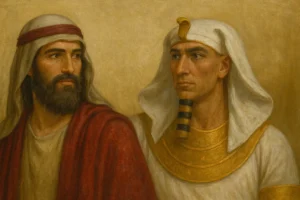“The stories of the Torah describe not only physical events that took place at a certain point in history, but also detail metaphysical and timeless tales occurring continuously within the human heart.
The wisdom of Joseph’s presentation to Pharaoh becomes strikingly clear when we reflect on the spiritual message behind the story.
All of us experience cycles of plenty and of famine in our lives. There are times when things are going very well: We are healthy, successful, and comfortable. Often during such times, we fail to invest time and energy to cultivate genuine emotional intimacy with our spouse, to develop real relationships with our children, to bond deeply with friends, and to create a sincere bond with G-d. We feel self-sufficient and don’t need anybody in our lives.
Yet when a time of famine arrives, when a crisis erupts (heaven forbid) in our lives we suddenly feel the need to reach out beyond ourselves and connect with our loved ones and with G-d.
But we don’t know how to. Because when we do not nurture our relationships and our inner vulnerability during our years of plenty, when the years of famine confront us, we lack the tools we desperately need to survive the crisis.
This is the essence of Joseph’s wisdom: You must never detach the years of plenty from the years of famine. When you experience plenty, do not let it blind your vision and desensitize you from what is important in life. The priorities you cultivate during your ‘good times’ should be of the kind that will sustain you during your challenging times as well. If you are investing your time and energy in things that will prove futile when the climate of your life changes and will not hold you up when challenges come, you might want to re-examine your present choices. Why wait for the day you will have to say, ‘If I would have only realized?'”

